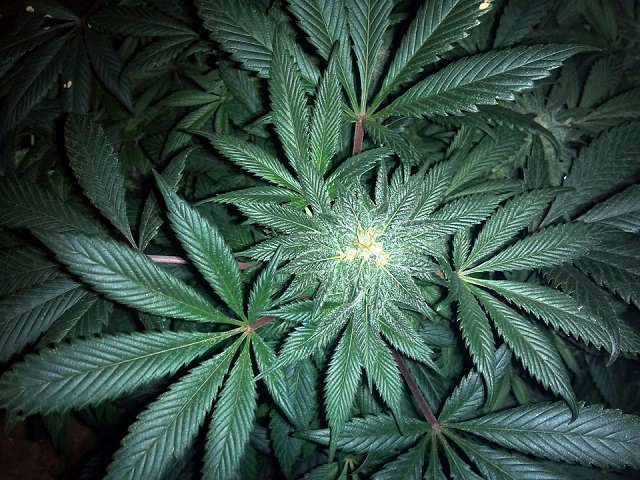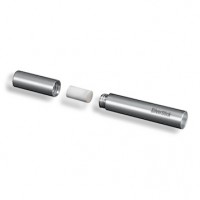
**Editor’s Note: This website is not designed to, and should not be construed to, provide medical advice, professional diagnosis, opinion or treatment to you or any other individual, and is not intended as a substitute for medical or professional care and treatment. Always consult a health professional about health care changes before trying out new home therapies.
.
Cannabis—marijuana—may be a gateway drug, but in a way we’ve never conceived.
Because of the stigma it has received—one that still continues—very little thought is given to the way the properties contained within this plant work to bridge the gap between our body and mind. It is this connect, that makes it a gateway to healing.
I never thought of cannabis as a drug that could bridge the gap between my body and mind, until the last year, when I started to smoke almost daily. Before that, I was so anxious and full of negative self talk.
My biggest battle was leaving my house after dark. My anxiety was so intense, at times I lost my balance and felt numbness and tingling in my limbs. I thought everything was wrong with me—a thyroid disorder, seizures, hypoglycemia. I was a hypochondriac to put it mildly, and my own ability to even consider it was my own thoughts that prevented me from leaving my house after dark was inconceivable.
But my fearful thoughts were literally poisoning my body. Anxiety medications helped some, but as soon as they wore off, my anxiety soared—and my thought pattern remained unchanged. Many us may not know (I did not know, until I started to read) about cannabis’ ability, not only to alleviate the anxiety, but to help form new thought patterns in our minds—that we have a system within us with which the active components in cannabis interact with to promote healing.
Cannabinoids act like little keys which bind to receptors to unlock new pathways. These cannabinoids help us see our surroundings in a new light, and with this fresh perspective, we can change. It is this mind-changing effect that can switch our thoughts into more adaptive and productive ones.
While healing occurs in all parts of the body, some believe it starts in the mind. And if the way we interact with our surroundings changes—we can find better resources, form better relationships and adapt to new situations better. When we do not feel well, often times we are less encouraged to try new things and to change old patterns.
It may sound overly simplistic, like “go cheer up” or “look on the bright side,” but for people who are clinically depressed, have social anxiety or obsessive compulsive disorder, it isn’t always that easy. These people are literally stuck in their thought patterns—not by choice—but because part of their internal systems are out of balance.
But with the help of substances contained in cannabis—THC and cannabidiol—this system can be brought back into balance causing a change in thought patterns. For example, artists and writers who have been blocked in the creative process have reported feeling inspired and motivated after smoking cannabis.
Sure, some may think—“Oh, this is a hippie new-age tale from the 60s mind-expansion, far-out counter culture movement”—but it is not. Patients, like myself, have reported improvement in mood, energy levels, anxiety and compulsions from the use of marijuana.
And the evidence is more than anecdotal—scientific studies reveal that cannabinoids interact with receptors associated with pain, anxiety and depression, in such a way, as to literally change the chemical reactions in our bodies. So if we inhale cannaboids—and this alters our ability to think and process information—over time, we will rewire these once maladaptive pathways.
But as long as cannabis is perceived as the “gateway to addiction,” we cannot conduct more studies that benefit and support the knowledge that exists, to see that cannabinoids are the actually a gateway to healing the connection between the body and the mind.
~
Relephant product from our mindful market:
Silver Stick
.
Author: Jane CoCo Cowles
Editor: Yoli Ramazzina
Photo: Pixabay


 Share on bsky
Share on bsky





Read 0 comments and reply